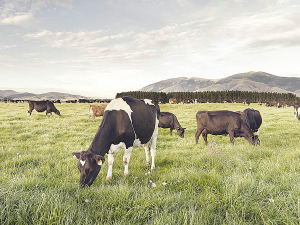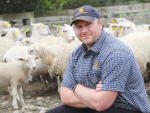Any farm system change should be farm by farm and not a wholesale change.
That’s the view of Dr Nick Sneddon, a senior lecturer in animal breeding at Massey University. He’s also worked as a business analyst at Fonterra.
Making any wholesale changes to the dairy farming system in NZ could end up having an overall detrimental effect, but Sneddon believes that individual farmers should closely examine their balance sheets and assess what cost cutting makes sense for them.
“For example, cutting out nitrogen might be viable on one farm but not on another, while reducing supplementary feed may work for one and not another,” he says.
Sneddon says the industry is going through another cycle of depressed prices for milk but he points out there have also been good times.
He says during the good times, the increased on-farm costs effectively get masked by the higher prices, but when incomes fall, the costs are exposed. He says the increased costs of bigticket items such as fertiliser and supplements have added another 60c/ kgMS to farmers’ costs. He adds that interest rates are also adding to the woes of farmers.
Sneddon says when it comes to cost cutting there are various tradeoffs. Once-a-day (OAD) milking is an option for some but again not for others.
“You can drop feed out but you can only do that if you reduce the number of animals you have to feed. You can’t remove nitrogen and expect to grow more grass.
“So, it’s possible looking at the cows at the bottom of herd and saying, who’s ready to go – namely those with low genetic merit or low production or repeat mastitis cows – and that can reduce that feed bill,” he says.
But Sneddon says care should be taken to keep young cows of high genetic merit that may not be the highest producers in the herd now but will be in the future.
“The ones to target are the older cows who are producing less,” he says.
Sneddon says the use of data is important to make the correct decisions. He says often farmers generate useful data but don’t realise it is available to them. He says they should not only look at recently generated information but also what milk production was three years ago at the same time of the year.


















